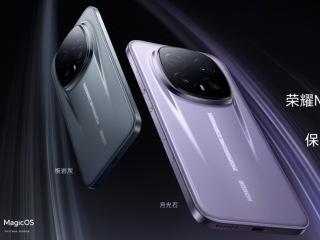- Home
- Internet
- Internet Features
- Two Retail Veterans Take Aim at Amazon's E Commerce Reign
Two Retail Veterans Take Aim at Amazon's E-Commerce Reign

One is to mount a frontal attack: Raise hundreds of millions of dollars from investors, build huge warehouses and a complex delivery infrastructure, establish deals with thousands of merchant partners and aim, through sheer brute force, to compete with Jeff Bezos' behemoth on the very qualities that have made Amazon peerless - selection, speed, customer friendliness and price.
The other way is to do something out of left field. While ceding some advantages to the Bezos machine - admitting that it may never beat Amazon on price, say - a startup could cleverly marshal new technologies to attack the giant on more favorable ground. For instance, as I argued in December, a new breed of on-demand companies like Postmates and Instacart is challenging Amazon on same-day delivery by using smartphone-routed workers to pick up goods from local stores and efficiently cart them to customers.
In the past few months, two retail veterans have been working on companies that explore these different avenues of breaking into online commerce.
Ron Johnson, who, with Steve Jobs, created Apple's lucrative physical stores, has been working on something out of left field - a selective online store called Enjoy, which, for no additional cost, will send an expert to hand-deliver tech products and spend an hour helping people set up and learn to use their new things. The service, Johnson said, is a smartphone-era take on his past at Apple - an effort to create the friendliness of an Apple Store in people's homes and offices.
Then there's Marc Lore, an e-commerce veteran who in 2010 sold his company, Quidsi, to Amazon for about $550 million. Lore's new service, Jet.com, represents a frontal assault on Amazon. Lore has raised more than $200 million - a staggering sum before even opening up shop - to create a nationwide e-commerce giant to compete with Amazon on selection, service and, especially, price.
Jet's promise is simple and, if the company can keep it, potentially momentous: to offer the absolute lowest price on just about everything, from paper towels to oatmeal to tennis rackets, guaranteed.
I've been chatting with Johnson and Lore about their ambitions, and testing each of their services in early, prerelease form. While their companies are completely different - and, like all startups, face long odds in reaching a critical mass of users - they each represent potentially transformative ways to shop online.
Their efforts suggest that online commerce remains a huge area of innovation and opportunity - and that Amazon, as big and indomitable as it sometimes seems, doesn't have the whole thing locked up.
"E-commerce today is primarily logistics and convenience - you order today and, boom, get it tomorrow," Johnson said in a recent interview at Enjoy's headquarters, a bustling warehouse in Menlo Park, California.
That model, he said, would remain a primary way people buy things, but smartphone-powered local delivery networks have also opened up a potential new way of shopping that Johnson calls "personal commerce."
Johnson began noodling around with the idea that would become Enjoy early in 2014, about a year after he was dumped from a disastrous run as chief executive of J.C. Penney. He became intrigued, he said, by the possibility of reimagining Personal Setup, a service he created at Apple that offers free in-store assistance to people who buy new products.
"I remember when we launched that, Steve said, 'Are you sure you can do that? Your stores are busy,'" Johnson said. "But I thought it was the right thing to do. And within a matter of weeks of launching it, well over half the purchases were being set up in a store."
Enjoy, which has recruited several former Apple employees, aims to offer a similar kind of setup, but at a time and place of the customer's choosing. Among other things, Enjoy's representatives will show you how to transfer your data from your old smartphone to your new one, train you to shoot and edit video on a GoPro, or explain how to add music to your Sonos audio system. As I saw in my own session with an Enjoy rep, the company will even teach you how to fly your new drone.
Enjoy is starting small. The company, which has raised around $30 million from investors, is starting out in just the San Francisco Bay Area this week and in New York City next week. Enjoy does not compete with Amazon on selection; it offers only about a dozen or so high-margin tech products for sale, among them laptops, GoPros, drones and, in an exclusive deal, smartphones and tablets purchased from AT&T.
Johnson believes that by limiting selection, Enjoy can offer free delivery and setup. Because it needs to stock only high-end products, the company hopes to squeeze enough out of each purchase to cover delivery and personal consultation.
Enjoy's big bet is that it can stock, route and schedule appointments efficiently enough to justify its staff of traveling experts - all of whom, in an interesting twist, are salaried employees and not hired on contract, a model used by many other logistics startups, including Uber.
Enjoy is in stark contrast with Jet, which, when it opens to the public in early July, does not aim to start small. Right out of the gate, it makes a huge promise: "You should never find an item that's more expensive on Jet than anywhere else," Lore told me this week.
Lore says he believes he can keep that promise thanks to an unusual business model. Like Costco, Jet will charge an annual membership fee, in this case $49.99. That fee is intended to free Lore from making any profit on each item - and thus pass all potential savings to customers.
I've been using Jet for about a week and a half, and have found it a work in progress. The site's selection, search functions and product descriptions are not polished, and it is missing useful features like reviews and recommendations. Lore said many of these shortcomings should be fixed by the time Jet goes public.
Right now, Jet is working well enough to bolster Lore's basic claim - on dozens of items I searched for, Jet was cheaper, sometimes unbelievably so, than Amazon, Wal-Mart or anywhere else online. For instance, a 40-pack of Duracell AA batteries on Amazon sells for $16.99. On Jet, the same pack is $13.70. If you add more items to your cart, Jet reduces the cost further. So, by ordering the batteries as part of a larger cart, I cut the price down to just under $11, about a third less than Amazon's price.
I noticed this effect on multiple orders across a wide range of household staples I usually order, from cooking oil to aluminum foil to shampoo to baby diapers. Jet's sticker prices are low, but when I created large carts, the prices shrank even more. My child's diapers, ordered in bulk, cost me 21 cents each, compared with 29 cents at Amazon.
Still, there are some disadvantages: Jet's fastest items ship in two days, slower than Amazon's next- or same-day shipping, and a huge number of its goods ship in three to five days. It also does not offer an Amazon Prime-like free shipping service; you pay $5.99 for all orders under $35, after which your order ships free.
These limitations suggest that Jet is going after an audience that's different from Amazon's - one that is less affluent, less hooked on impulse buying and more interested in discounts.
"For most households, the proposition of paying $50 to Jet and saving $200 for the year, that's a no-brainer thing," Lore said.
What's most fascinating about the e-commerce industry is that neither Lore's frontal attack nor Johnson's flanking maneuver is an obvious loser. Amazon is almost 22 years old, and every year it captures an ever-greater slice of national shopping. And yet, in the overall scheme of U.S. commerce, it is tiny.
Over the holidays, Amazon sold a record $29.3 billion in merchandise, more than many large e-commerce companies combined. But Americans spent around $1.2 trillion in the same period, meaning that Amazon accounted for just 2 percent of our purchases. In other words, there's lots of room for new ways to get Americans shopping online.
© 2015 New York Times News Service
Catch the latest from the Consumer Electronics Show on Gadgets 360, at our CES 2026 hub.
Related Stories
- Samsung Galaxy Unpacked 2025
- ChatGPT
- Redmi Note 14 Pro+
- iPhone 16
- Apple Vision Pro
- Oneplus 12
- OnePlus Nord CE 3 Lite 5G
- iPhone 13
- Xiaomi 14 Pro
- Oppo Find N3
- Tecno Spark Go (2023)
- Realme V30
- Best Phones Under 25000
- Samsung Galaxy S24 Series
- Cryptocurrency
- iQoo 12
- Samsung Galaxy S24 Ultra
- Giottus
- Samsung Galaxy Z Flip 5
- Apple 'Scary Fast'
- Housefull 5
- GoPro Hero 12 Black Review
- Invincible Season 2
- JioGlass
- HD Ready TV
- Laptop Under 50000
- Smartwatch Under 10000
- Latest Mobile Phones
- Compare Phones
- Vivo Y500i
- OnePlus Turbo 6V
- OnePlus Turbo 6
- Itel Zeno 20 Max
- OPPO Reno 15 Pro Mini 5G
- Poco M8 Pro 5G
- Motorola Signature
- Vivo Y50e 5G
- Lenovo Yoga Slim 7x (2025)
- Lenovo Yoga Slim 7a
- Realme Pad 3
- OPPO Pad Air 5
- Xiaomi Watch 5
- Huawei Watch 10th Anniversary Edition
- Acerpure Nitro Z Series 100-inch QLED TV
- Samsung 43 Inch LED Ultra HD (4K) Smart TV (UA43UE81AFULXL)
- Asus ROG Ally
- Nintendo Switch Lite
- Haier 1.6 Ton 5 Star Inverter Split AC (HSU19G-MZAID5BN-INV)
- Haier 1.6 Ton 5 Star Inverter Split AC (HSU19G-MZAIM5BN-INV)

















